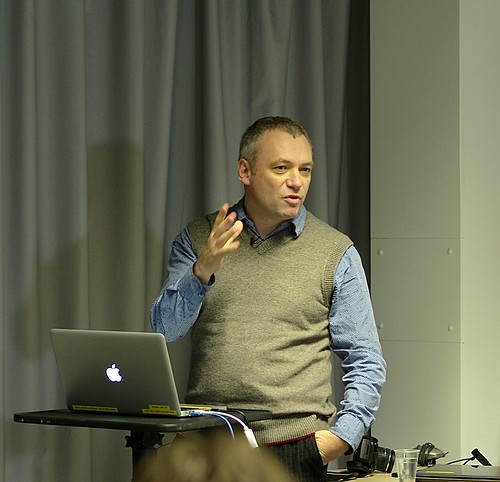Great article by David Runciman about why British politicians are so afraid of the newspapers. Excerpt:
Politicians are always complaining that the 24-hour media cycle doesn’t give them time to think because the story is always changing. But there is another problem. As well as having short attention spans, newspapers also have long ones. They are still there long after the politicians have gone, which means they always get the last word. At the beginning of the film The Queen, Tony Blair is ushered into Downing Street and told by his monarch that he is her 10th prime minister. It is not hard to imagine a similar scene being played out in the court of Rupert Murdoch. David Cameron, after all, is his seventh prime minister. Murdoch resembles the Queen in more ways than he might like to admit. As well as being autocratic, press power also tends to be dynastic (the Daily Mail still belongs to the Rothermeres; Murdoch is still desperate to pass some newspapers to his children, as his father passed some newspapers to him). A lot depends on being able to outlast the politicians. The web has undone plenty of things about the newspaper business, but so far it hasn’t undone that. Newspaper owners can keep their power in the family in a way that democratic politicians can’t, however much some of them (the Clintons, the Bushes) might like to try.
One day soon that might change. The web, as well as altering the way we consume news, has also speeded up the business cycle: online enterprises rise and fall much faster than traditional media operations. As yet, this hasn’t reached the newspaper business. No new national title has been launched for more than two decades, and none has gone out of business, with the exception of the News of the World. But if newspapers start folding, and newspaper ownership starts changing hands more rapidly than it has done in the past, that might finally break the spell of the press barons. If it does happen, though, the politicians won’t simply feel relief. They will also feel a pang of regret and perhaps even of panic. The web, for all its ability to cut newspapers down to size, can’t offer politicians the same comforts. Newspapers represent the sort of power that politicians know, understand and respect. However much they might complain, as Blair did in his dying days in office, about the “feral” qualities of the press, it is nothing compared with the feral qualities of the web. No one can control it. As Henry Kissinger complained of Europe, when you want to call the internet, who do you call? At least Murdoch offered that reassurance – a voice at the end of the line.
Earlier in the piece, Runciman makes a perceptive observation that the real power of British newspapers comes not from determining the outcome of elections (apolitical readers don’t do what they’re advised by editorial writers) but from their ability to foment and amplify enmities and rivalries within parties and governments — which gives electorates the impression of the one thing voters apparently hate, namely internal bickering and feuding.
Worth reading in full.



